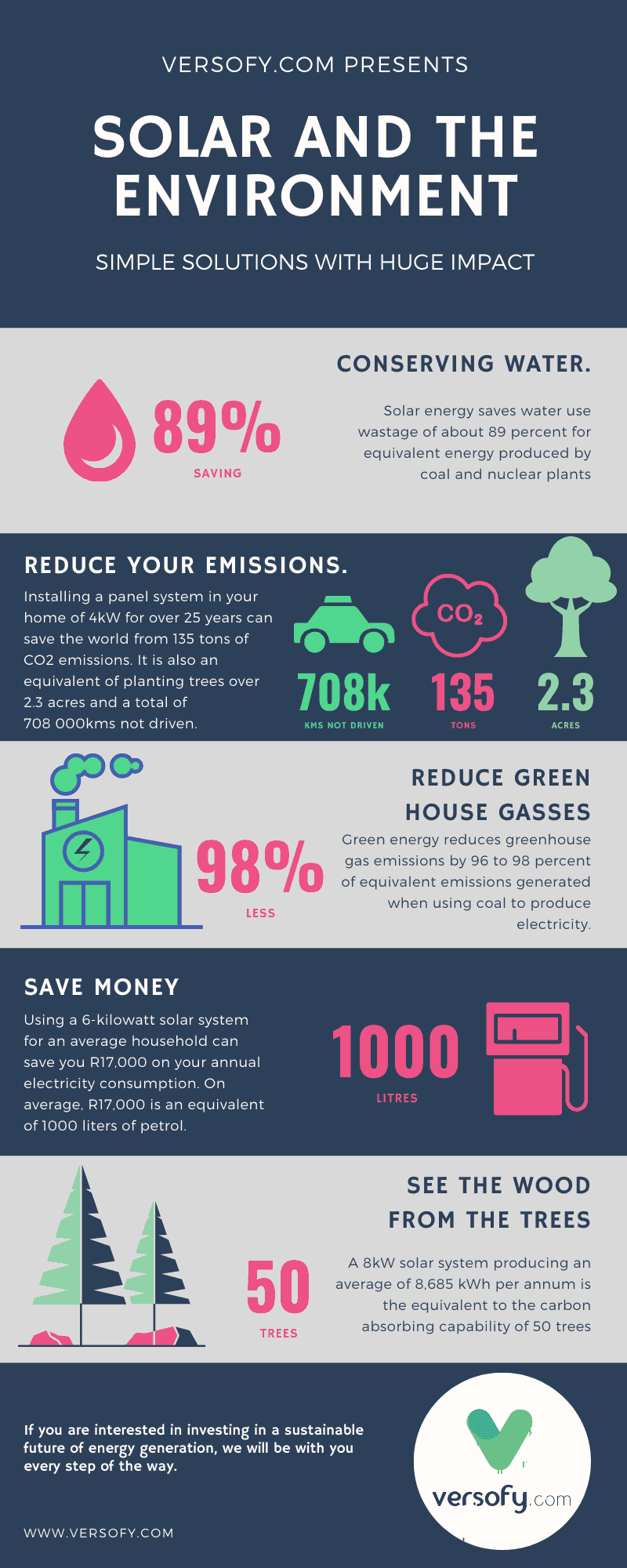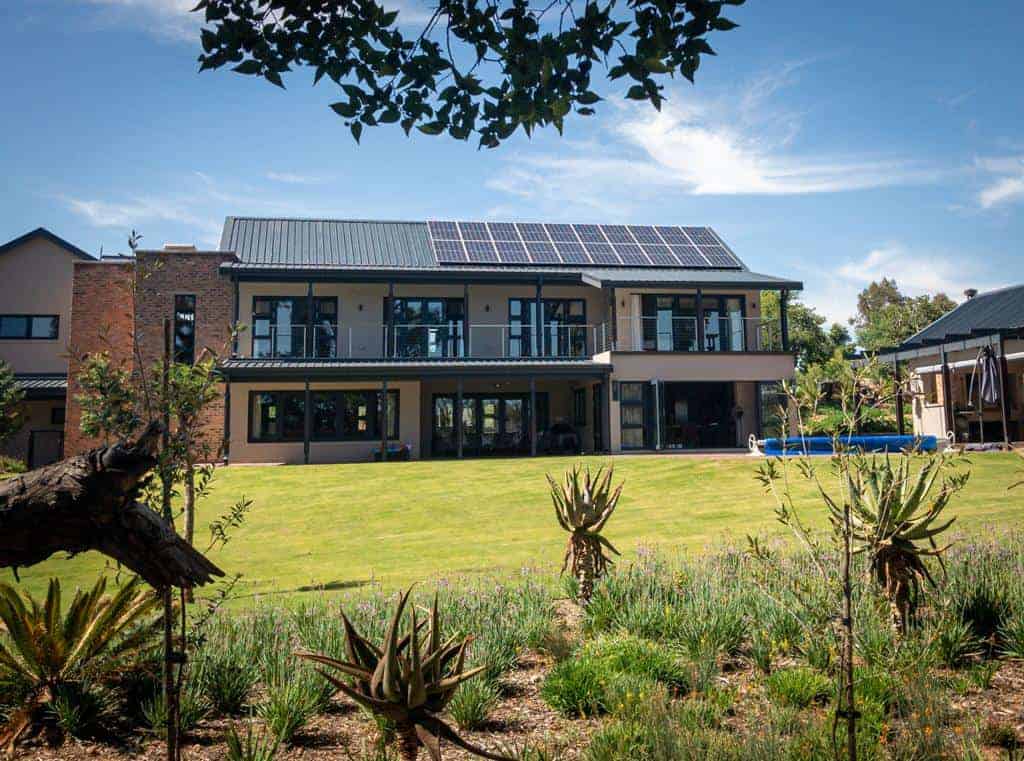
Considering switching to solar? Your conversion will do more than save you money, it will help save the environment as well.
Solar is a renewable source of energy. Unlike native fossil fuels, the sun is not losing its power anytime soon. You can, therefore, count on solar power as a reliable environmentally friendly source of energy. It has endless benefits to the environment. Below are some comparisons to chew on:
Interesting Environmental Stats
- Installing a panel system in your home of 4kW for over 25 years can save the world from 135 tons of CO2 emissions. It is also an equivalent of planting trees over 2.3 acres and a total of 708 000kms not driven.
- Green energy reduces greenhouse gas emissions by 96 to 98 percent of an equivalent generated when using coal to produce electricity.
- Using solar power to produce an annual energy equivalent of 7,248 kWh can reduce carbon emissions equivalent to 2300 kgs of carbon dioxide produced from an annual use of coal for the same amount of kWh.
- Two people running an ordinary solar system can cut annual carbon emissions between 3 to 4 tons.
- Solar energy saves water use wastage of about 89 percent for equivalent energy produced by coal and nuclear plants. These plants generate a kilowatt of electricity using about 90 to 300 litres of water.
- Green energy can produce equivalent electricity with less than 20% of the land that traditional electricity generating plant needs.
- A 7,848-watt solar system producing an average of 8,685 kWh per annum is the equivalent to the carbon absorbing capability of 49.77 trees.
- Using a 6-kilowatt solar system can save you R17000 on your annual electricity consumption for an average household. On average, R17,000 is an equivalent of 1000 liters of petrol.
- In its life service, a 6-kW solar panel system can save over R480,000. This is an equivalent of 32,000 liters of petrol.
- The amount of carbon dioxide in grams produced by solar energy is 32 to 91 for a kilowatt-hour. Fossil fuels produce 0.6 to 1.6 kgs for the same kilowatt-hour. Although carbon dioxide from carbon emissions for kilowatt-hour is about 0.3 to 0.9 kgs, the accumulation of smoke in the atmosphere poses harm to public health and the environment.
The stats don’t lie
Solar energy reduces carbon emissions and can lead to indirect saving on the amount of fuel required to produce electricity to the national utility grid from hydro-power electricity systems. It saves water, atmospheric damage, trees, and fuel consumption.
Ready to get started?
If you are interested in doing your part in reducing carbon emissions and transitioning to a clean energy solution, be sure to get started with Versofy, and we will assist you every step of the way.




